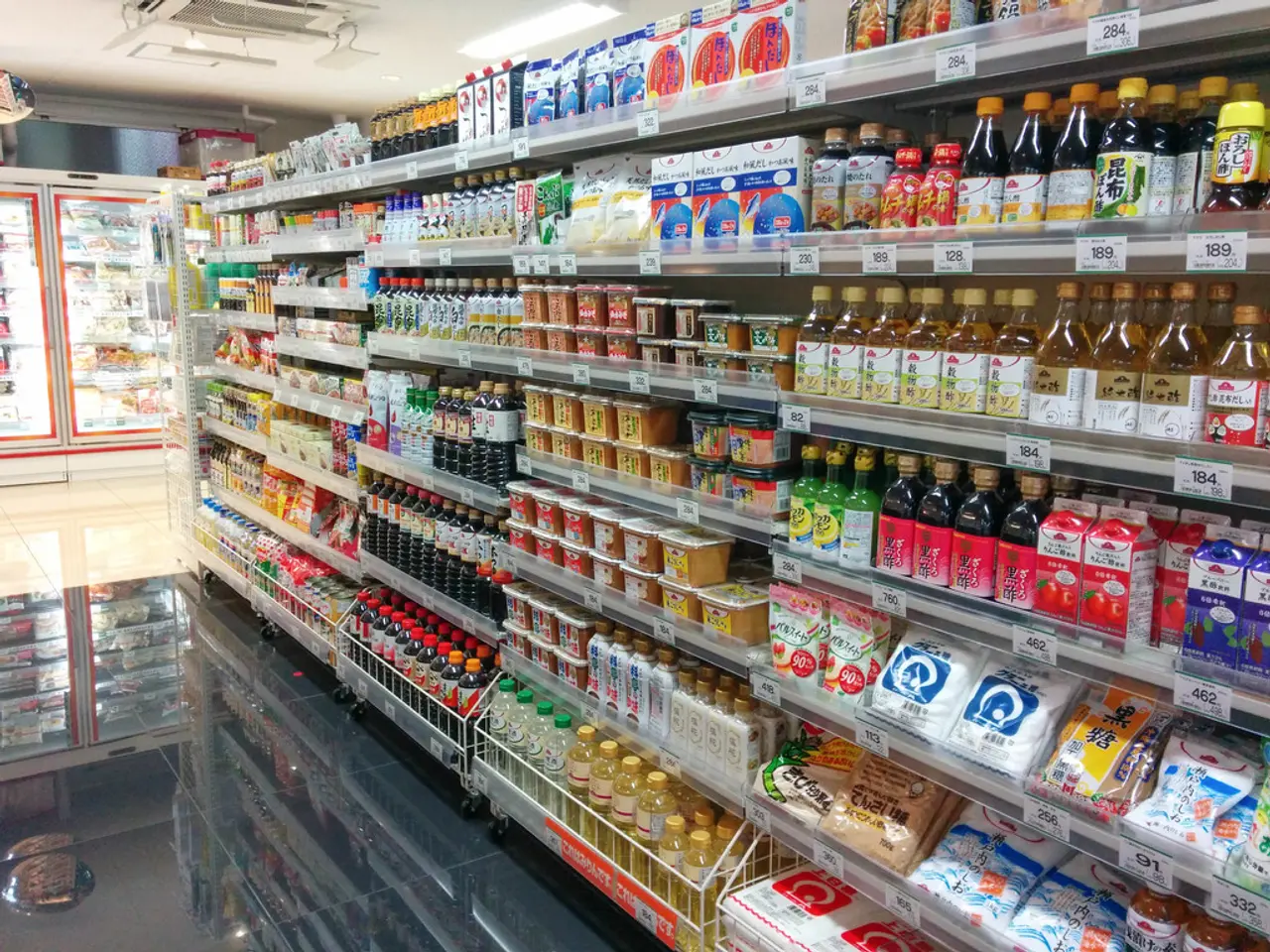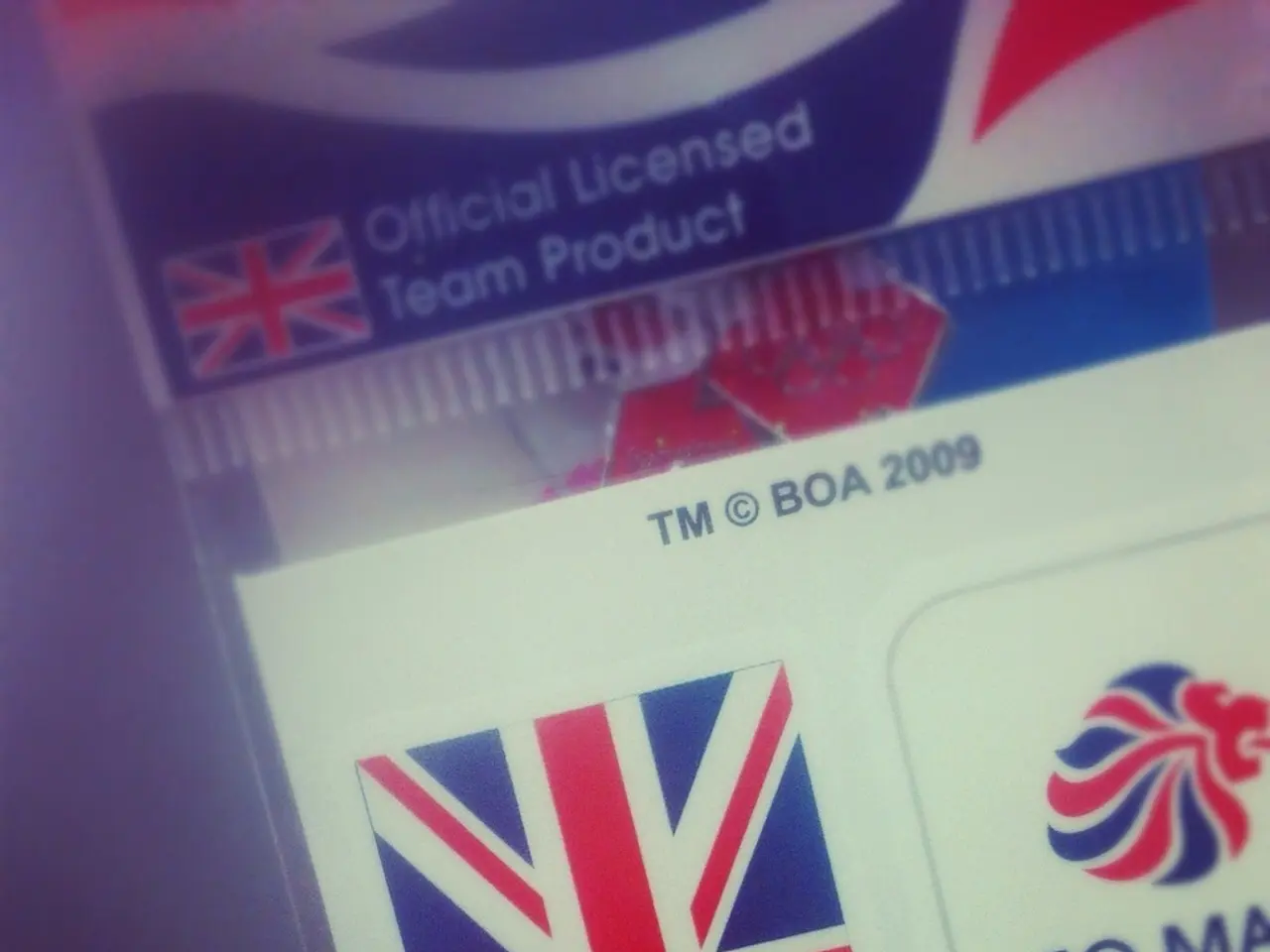Retail sales in the UK recover in June, but fail to meet anticipated levels
In Q2 2022, the UK retail sector faced a challenging environment, with retail sales volumes growing only by about 0.2% quarter-on-quarter, according to the Office for National Statistics (ONS).
The modest growth in retail sales was due to a variety of factors. Online store sales volumes reached their highest level since February 2022, with a 1.7% uplift, thanks to promotions, events, and the good weather. However, this growth was less than the expected 1.2% increase as predicted by economists.
Sales for food stores rose 0.7% in June, and the good weather in June had an impact on the rise in automotive fuel volumes, which increased by 2.8% from May, marking the largest monthly rise since May 2024.
June was England's warmest on record, as reported by the UK's Met Office, and this led to an increase in drink purchases and barbecue organizing, contributing to the rise in food store sales.
Despite these positive signs, sales volumes across all main sectors remained below pre-pandemic levels. The strong economic growth in the first quarter of 0.7% has waned in the second quarter, providing further evidence of a slowdown in the UK's economy.
Consumer confidence also took a hit in Q2 2022. It fell notably, reaching its lowest level since early 2021, according to a separate GfK survey. This decline in confidence was driven by concerns over job security and increased debt levels, partially attributed to rising employer national insurance contributions and minimum wage hikes implemented in April 2022.
Economists predict that chancellor Rachel Reeves will have to raise taxes in the Autumn Budget to fill a fiscal hole of £20bn. The increased taxes and inflation raised household costs, leading many consumers to reduce discretionary spending, which constrained retail sales growth despite some recovery efforts in sectors like groceries and fuel sales.
In June, UK inflation rose more than expected to an 18-month high of 3.6%. Food inflation hit 4.5% in June, adding to the financial strain on consumers.
In summary, the outlook for UK retail sales in Q2 2022 was cautious, reflecting the impact of inflation and tax increases on consumer spending behavior. Despite some positive signs in certain sectors, overall sales growth remained subdued, and consumer confidence was at its lowest level since early 2021. Retailers will need to navigate these challenging conditions carefully to maintain growth in the coming months.
- The rise in inflation, coupled with increased taxes, has prompted economists to forecast that higher household costs will lead consumers to cut back on discretionary investments, which may hinder the growth of the retail sector.
- The slowdown in the UK's economy, coupled with a decline in consumer confidence due to concerns over job security and increased debt levels, has put pressure on business financing as consumers reduced their spending on non-essential items, impacting retail sales growth.




